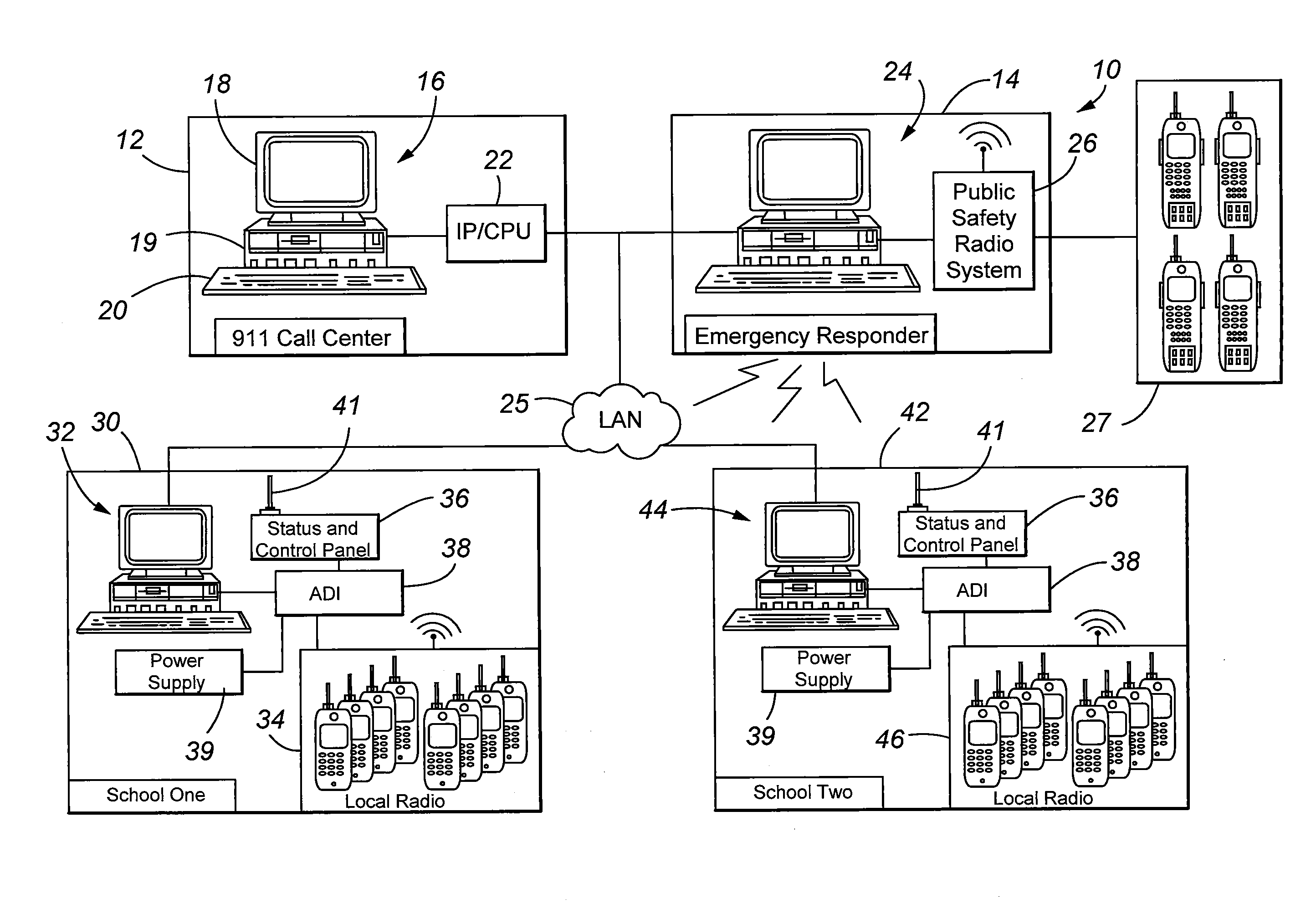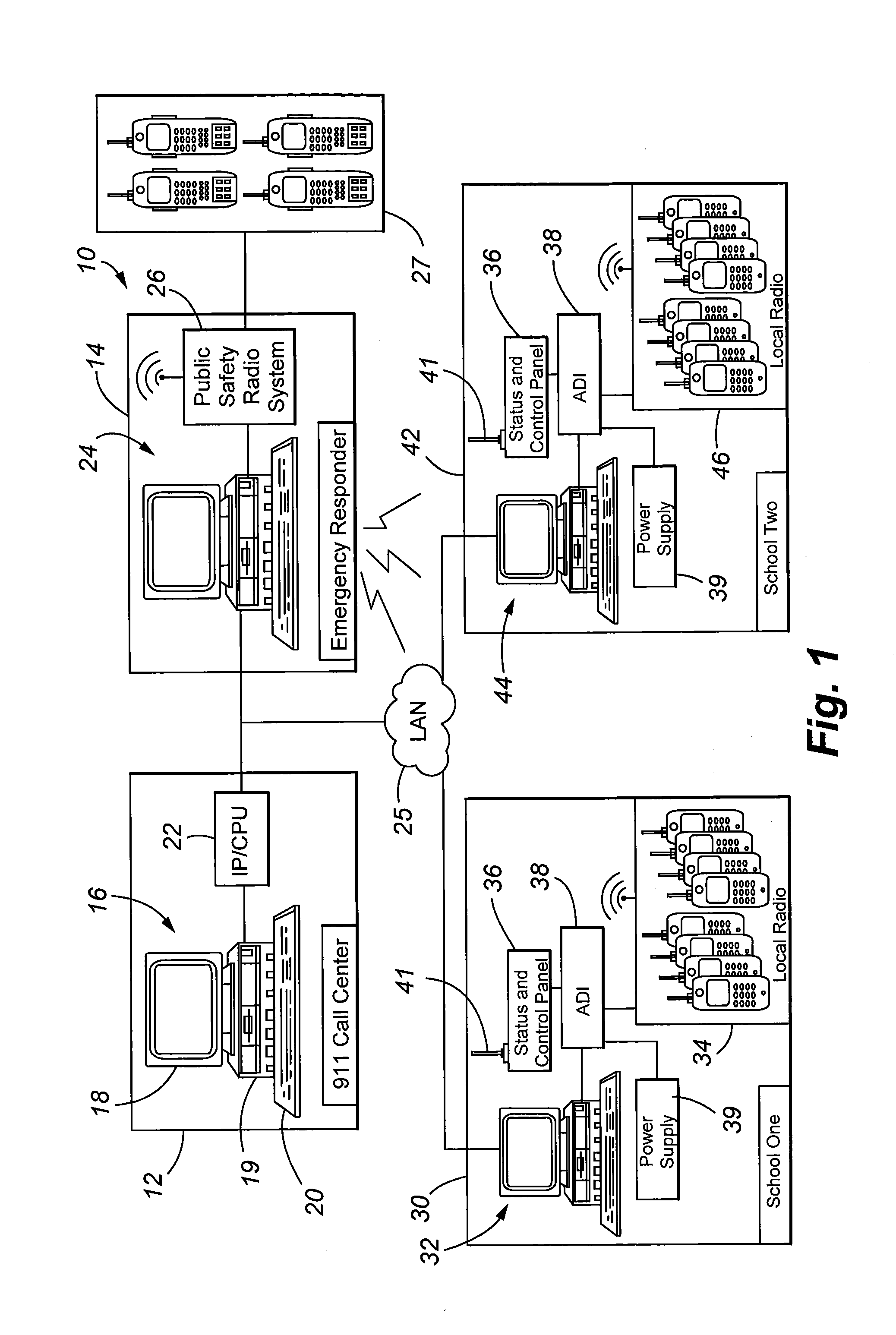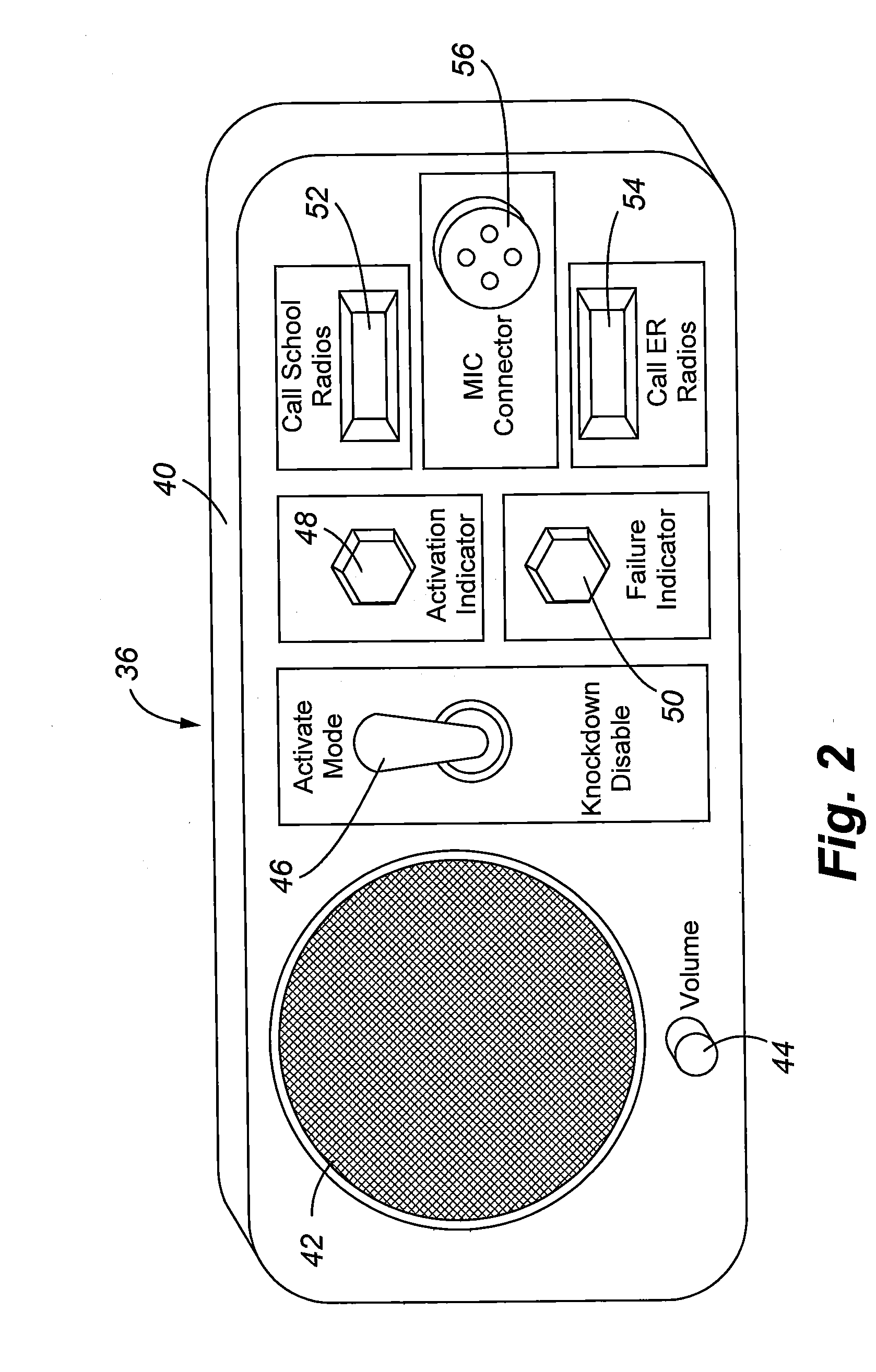Emergency Communications System
a communication system and emergency technology, applied in the field of emergency communication systems, can solve the problems of emergency responders having no direct radio communication with personnel located, emergency situation turning into a tragedy, and difficult for organizational personnel to directly speak with responders prior to emergency situation, etc., to achieve high speed, activate and deactivate the bridge
- Summary
- Abstract
- Description
- Claims
- Application Information
AI Technical Summary
Benefits of technology
Problems solved by technology
Method used
Image
Examples
Embodiment Construction
[0029]Referring first to FIG. 1, the communication system 10 of the present invention is illustrated. A 911 call center 12 is equipped with one or more computer processing units 16 which are able to administer 911 calls coming into the center and appropriately assigning actions to be taken by emergency responders located at responder location 14. A 911 call center computer / server 16 is shown as being conventional with a user interface such as a screen or monitor 18, a computer processor or server 19, and one or more input devices 20 such as a keyboard or a mouse. A separate Internet protocol / central processing unit (CPU) 22 is illustrated as being co-located within the 911-call center. This particular CPU 22 has computer-coded instructions in the form of firmware or software that facilitates the functionality of the present invention, as further discussed below. This CPU 22 may also be defined as a computer server with a connection to at least one local area network and the Internet...
PUM
 Login to View More
Login to View More Abstract
Description
Claims
Application Information
 Login to View More
Login to View More - R&D
- Intellectual Property
- Life Sciences
- Materials
- Tech Scout
- Unparalleled Data Quality
- Higher Quality Content
- 60% Fewer Hallucinations
Browse by: Latest US Patents, China's latest patents, Technical Efficacy Thesaurus, Application Domain, Technology Topic, Popular Technical Reports.
© 2025 PatSnap. All rights reserved.Legal|Privacy policy|Modern Slavery Act Transparency Statement|Sitemap|About US| Contact US: help@patsnap.com



